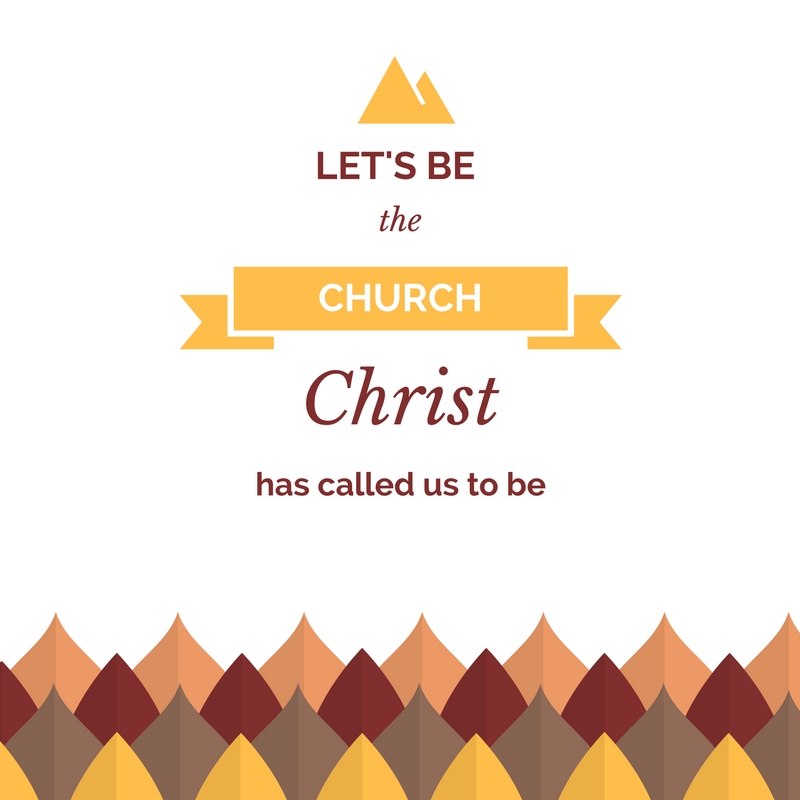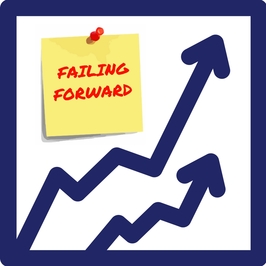|
When I was growing up my dad used to drive me to my hockey practices and games. My dad didn’t grow up playing competitive hockey so he couldn’t teach me about the game, but he made sure I learned from coaches who understood the game. Over the years my dad grew in his hockey knowledge and decided to be an assistant coach. Then he managed a couple of the teams I played on and eventually became the hockey commissioner in Burnsville. But at the end of every day, he was still my father and I was still his son.
When Kathi and I first learned that we were expecting our first child, we were in the process of remodeling our bathroom. The trash was full so I took it outside to throw away. When I walked back in Kathi pointed to the wall which read; “I’m pregnant!” I was totally surprised and now not only did I have a father, I was going to be a father. I had never been a father and had no idea what to do. I was a son and a brother, but never a father. I had watched my dad and learned from him, but I had never been a father myself. I never really understood what it meant to be a father until I had a child. But when Josh came crying into this world, I felt the burden of being a father. I have continued to be a father to him as well as to my daughters Sara and Katie. My father didn’t quit being a dad when my three children were born either. He continues to this day to be my dad, but he has added the title of "Grandfather". In fact, I will continue to be a father for the rest of my life, just like my dad will continue to be a father for the rest of his life. As my kids grow, I will grow with them. We will learn together, explore together, and cry together. No matter what happens, I will always have a father and be a father, and my children will always be my children even when they have children of their own. When I gave my life to Jesus, I became a Christ child and began growing in my faith. My friend Tim coached me along with Pastor Buford. I grew and matured as a disciple, and have led others to Christ along the way and became their spiritual coach. As a pastor, I now coach many people challenging them to grow deeper in their faith and encouraging them to coach others. I am still a disciple and learn from others and at the same time I coach others who coach others. Like being a father, discipleship is a life-long journey. When I became a father, I became a father for life just like my father. When I became a disciple, I became a disciple for life just like Jesus teachers. I’m responsible for both being a disciple and being a spiritual mentor to others. Jesus says: “If you remain in me and my words remain in you, ask whatever you wish, and it will be given to you. This is to my Father’s glory, that you bear much fruit, showing yourselves to be my disciples.” John 15:7-8 This passage describes four characteristics of a disciple. First, a disciple remains in Christ. The New Testament does not teach perfection. It teaches process. We grow as we immerse ourselves in God’s message to us, for Scripture is the very heartbeat of God. Second, a disciple is obedient to Jesus. There is no discipling without training and there is no training without accountability. God wants our love, and we demonstrate that love through our obedience to him. Third, a disciple bears spiritual fruit. What is spiritual fruit? Spiritual fruit is applied love, joy, peace, patience, kindness, and goodness. When a person remains in Christ and is obedient to his teachings with their lifestyle, spiritual fruit will be produced. You can recognize a disciple by the results he or she produces in their life and in the lives of others. Spiritual fruit is the outcome of biblical principles when they are applied. Fourth, a disciple glorifies God. We glorify God by living out his teachings in our day to day lives and in the way we influence others around us. These characteristics should be evident in the lives of every disciple and spiritual mentor who is educating, equipping, encouraging, and empowering others to do the same. I want to nudge you to go deep and wide in your faith. Be intentional about connecting with others who can challenge you to grow deeper by being discipled, and go wider by discipling to others. The American church as a whole needs more people who are willing to do both. Paul wrote the Colossians instructing them to “Let your roots grow down into him, and let your lives be built on him. Then your faith will grow strong in the truth you were taught, and you will overflow with thankfulness” (Colossians 2:7). It’s time to raise the bar in our churches and communities and God needs you to do it. This is what discipleship is all about.
0 Comments
The Christian life is exciting, engaging, encouraging and extreme. It’s not dull, lazy, routine, or boring. Christ wants your life to be way better than average, He wants it to be an adventure. The early church understood this and they passionately followed Jesus' teachings and, in turn, lived a better life. Acts 2:42-47 reveals what this better life looks like:
“42They (believers) devoted themselves to the apostles' teaching and to the fellowship, to the breaking of bread and to prayer. 43Everyone was filled with awe, and many wonders and miraculous signs were done by the apostles. 44All the believers were together and had everything in common. 45Selling their possessions and goods, they gave to anyone as he had need. 46Every day they continued to meet together in the temple courts. They broke bread in their homes and ate together with glad and sincere hearts, 47praising God and enjoying the favor of all the people. And the Lord added to their number daily those who were being saved.” Acts 2: 42-47 NIV What did Jesus' followers do that enabled them to live a better life? Here are four traits. 1. They engaged with other Christians at church (vs 42). The church played a central part of everyone’s life in the early church. They spent time together, learned together, ate together, and prayed together. In general, today people’s lives primarily revolve around three things: their home, their career, and a third place they spend their time. For many people, that third place is a bar, sports events, the shopping mall, a friend's garage, or church. We want Freshwater to be the third place that people revolve their lives around just like it was in the early church. Why? Because Freshwater is full of life. Good friends are made here, ministry is done here, prayer takes place here, and positive values are taught here. We want to be like the early church because the early church was a light in Jerusalem and we want to be a light in our region. 2. They witnessed God move among them (vs 43). What happened when the people lived Jesus' commands? What happened when people prayed together and ate together and hung out together? God moved among them. I can hardly explain the feeling I get when I witness God move among people and the best part is that he moves here often. What does it look like when God moves? Well for starters, people get healed both physically and emotionally. It is a miraculous and fulfilling thing to witness Him move. 3. They were generous with everything (vs 44). Christians should be generous because of God’s generosity to us. One of the most talked about subjects in the new testament is generosity and the opposite- greed. When we are generous it unlocks the grip that money can have on our hearts. A lot of people have no problem giving their heart to Jesus but they have a big problem giving him their finances. The Christians in the early church were generous with everything they had and it was attractive to the world around them. To this day, it’s Christians who care for the poor and destitute around the world. Christians run the Salvation Army. Christians organize Operation Christmas Child. Christians deliver hope through Compassion International. Christians adopt needy children through World Vision and feed them through organizations like Feed My Starving Children. Christians are the light of the world and generosity makes that light burn bright. People who are not generous are not fueling the light nor are they very spiritually mature. Imagine how brightly the light of Christ would burn if everyone was generous with everything they had just like the early church. It would change the world. God wants Freshwater to be a generous church because God wants Freshwater to be a bright light in this community. 4. They watched God’s movement grow (vs 47). The church in Jerusalem was several thousand people strong but it didn’t just keep getting bigger and bigger. What happened was it got wider and wider. As the word of God spread more and more, churches sprang up in the communities where people lived. Freshwater is a place where you can engage your faith through serving, sharing, and caring. It’s a safe place where you can be you. It’s also a place where the light of hope and peace burns brightly. Let’s build better lives by building them on Jesus Christ and encouraging others to do the same. Let’s be like the early church. Let’s engage with our faith. Let’s witness God move. Let’s be generous with everything. Let’s watch God’s movement grow in our region. Let’s make a difference right now and raise the spiritual climate of our community. James was a grocery clerk who started, with capital of $65, to peddle cheese from a one-horse wagon. To say he was a dismal failure would be kind. James continued to push himself but grew deeper in debt. He was young and inexperienced, so he sought the advice of a wise Christian friend. “You haven’t included God in your business,” his friend observed. “You haven’t let Him take over the work – you’ve only asked Him to be a part of it. That’s not how God works.” This sent the young clerk into a tailspin. James was gripped with mixed emotions. He was offended that such a judgment be laid on him. At the same time he was struck by his friend’s blunt honesty. It was a pivotal moment for him. Days passed as the young clerk prayed and pondered. His business was failing but he decided to look past his shortcomings and stare into his future. Finally, he crossed a line in the sand. He wrote his friend, saying, “If God wants to run this cheese business, He can do it. I’ll work for Him.” And this is what he prayed. James' pity party had come to an end. From that moment on, God became the senior partner in his business, the Chief Person consulted in every decision. A chair was left open in meetings, reminding key staff of His presence. Over the months the business grew and prospered. It eventually became the largest cheese company in the world. James L. Kraft’s failures didn’t keep him from succeeding. James' determination and unwillingness to give up made all the difference in the Kraft Cheese Company. I have three tips that will help you to fail forward.
1. Reject rejection. We all fail, but not everyone fails forward. Just because you failed once it doesn’t mean that you will be a failure every time you try. The hardest step to take is the one that gets you back on your feet again. On one occasion Jesus sent a group of his disciples ahead to make plans for him in a city. Instead of being welcomed, the men were beaten and ran out of town. Jesus didn’t quit ministry just because a group of people rejected him, he refused to be rejected and moved on. He could have given up because at times it may have felt as if the world was against him, but he didn’t. Jesus didn’t fail because he rejected rejection. You need to reject rejection too. When you refuse to be rejected, you will be willing to try again. 2. Create realistic expectations for yourself. You can expect to take a walk around your neighborhood with few problems. But if you expect to climb Mount Everest without any problems, clearly you have not set realistic expectations. I do a lot of pre-marital counseling. The one thing I try and communicate to every couple is that in your marriage relationship you will have problems. But how you deal with them is what counts. Life involves both success and failure. Be sure to set realistic expectations for yourself. Jesus said: “In this world you will have trouble. But take heart! I have overcome the world.” John 16:33 3. Learn how to bounce back. Everybody fails, that’s a fact. You and I have to learn how to fail forward. It’s called bouncing back. In 2 Corinthians 11 the Apostle Paul lists off about a dozen of his problems to illustrate how he felt. This is a summary of what he said: “I was beaten and abandoned, I was left for dead, I was shipwrecked and spend the better part of three days in the open water. My friends abandoned me in my time of need. I have a serious physical illness that hurts constantly.” (my paraphrase) You know that failure crossed Paul’s mind on several occasions. Even after all his problems Paul said: “…for Christ’s sake, I delight in my weaknesses, in insults, in hardships, in persecutions, in difficulties. For when I am weak, then I am strong.” 2 Corinthians 12:10 (NIV) Joseph failed forward and ultimately saved a nation. David failed forward and became a great king. Peter failed forward and was restored in his relationship with Jesus. Failure doesn’t have to be final, keep your eyes on Jesus, learn from your mistakes, and get back on your feet again. God is with you and for you so even if you have failed, you can still make progress. Stay strong my friend and when you fail, fail forward. |
Archives
November 2022
|


